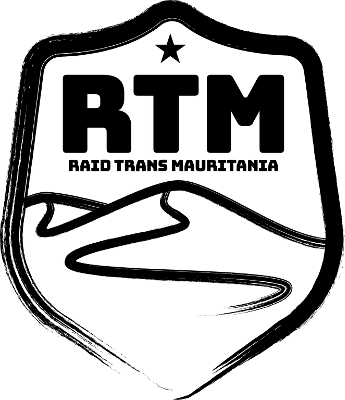Frequently Asked Questions
Write us at contact@raid-transmauritania.com, we list the competitors in the same case as you and we put you in touch.
We offer a small number of Fatbikes for hire.
However, we advise you to start by looking for a rental company near you. You can often find one by the sea or in ski resorts.
Don’t forget that Fatbikes must be tubeless, i.e. without an inner tube, but with a preventive product that automatically seals the punctures.
We recommend tyres of at least 3,5” / 4”, otherwise the bearing capacity is too low. Basically, with a 27.5”+ mountain bike you risk being a bit limited in very sandy sections and having to carry the bike.
Finally last detail before contacting a rental company, you need a classic fatbike without electric assistance, because the batteries can’t take plane and are difficult to charge in the desert.
Here are a few rental addresses where you might be able to find a fatbike to come and participate:
- Hadrien Legagneur Cycles, zac des truberdières, 72220 Ecommoy, +33 6 74 49 12 31
- Fontainebleau Bike Rental, 77123 Noisy-sur-école, +33 6 22 24 43 53
- Cyclotrott, Port de La Palmyre, 2 bd de la Plage, 17 570 La Palmyre, +33 5 46 22 52 34
- Fats and Bike 17, 3 av. Perraudeau de Beaufief, 17390 La Tremblade, +33 6 66 95 81 39
- Centre de pleine nature Eolia, 14710 Colleville-sur-Mer, +33 2 31 22 26 21
- La trottinette, 2 rue de la Chaume, 85350 Port-Joinville, île d’Yeu, +33 2 51 58 31 06 / +33 6 78 61 26 64
- Mountain Spirit, 135 rue des billets, 74340 Samoëns, +33 4 56 12 78 39
- Trace Verte, Place de la Gare, 67190 Mutzig , +33 3 88 38 30 69
It’s possible to sign up even if you do not have a partner to form a team. Every year we have people who come alone, we then make a team. We can even form groups of 3 on untimed ride, it has already happened. Depending on the profile of each person, we propose the most appropriate solution. We are also 2 or 3 of the organisation to ride at the same time, it is possible to join one of us. However, this implies that you agree to ride with someone you met (before in France or at the airport) during the whole event.
In short, not having a partner, should not be a brake to registration, we will always find solutions to live the adventure !
No, for safety reasons, we have chosen a mandatory participation by team of 2 (at least) in untimed ride as in timed race. In case of problem (mechanical or physical), it’s better to be with someone in the immensity of the desert but also nicer to share the adventure with someone, if only for the pictures!!
No, even if your partner is forced to abandon (injury), you will be able to continue the event with another team or by accompanying an organiser who is doing the whole course on a Fatbike. There are always ways to get to the end of the RTM adventure.
The safety of the participants is ensured by the organisation team’s doctor, who follows the event in a 4wd. Even if you are in the middle of the desert (off-road most of the time), we can access almost everywhere. We have several communication media thanks to the GPS beacon of each team with a means of triggering an alert (Tracker), walkie-talkies and the GSM network which works in many places. In addition, 2 or 3 members of the organisation will ride the whole of the stages on a Fatbike to be as close as possible to the participants.
Even if you are in the immensity of the desert, you are not lost anywhere, you will follow a precise track on your GPS. You are on marked routes that are very well known to the organisers. In case of GPS failure, you will also have a map and an emergency road-book explained during the briefing of each stage. The event is followed by 4wd (you will see us often) and each team has a GPS beacon to know his position. We also have a member of the organisation who closes the event on a Fatbike to help anyone in difficulty.
If you can’t fix it yourself, Cédric, our favourite mechanic, will be happy to help you during the stages. He closes the event every day on a Fatbike loaded with small repair materials. If the incident is more serious, our assistance 4wd will be able to take you back to the bivouac and allow a repair or replacement of your Fatbike so that you can set off again the next day.
No, it is strictly forbidden to split up a team. For safety reasons, everyone is asked to stay in sight. Even if you have a GPS for each, there will only be one tracker per team. If you are separated and one of the competitors gets injured, it could be difficult for us to rescue him/her without a tracker and the help of his/her partner to give the alert.
Raid TransMauritania is a demanding event with regard to the conditions encountered: length of the stages, sand, heat, specific terrain for riding… but not insurmountable! The technical difficulties are quite different from those encountered in the mountains or even in the forest in France. The routes are accessible to anyone who knows how to ride safely (position – braking) and change gears on a mountain bike. On the most demanding passages (steep sandy descents, soft sand dunes, reg of large stones…), it is always possible to get off the Fat and go on foot. This is not the majority of the route.
On the physical difficulty of the courses, you have to arrive with a good condition without necessarily being a champion. There is the possibility in untimed ride mode to shorten each stage. At the refreshment points, each participant can decide to stop and finish in 4wd depending on his or her form of the day.
The RTM is possible for any sportsman or cycling enthusiast preparing to experience an exceptional event!
During the stage, a 4wd can take you back to the bivouac, your partner can continue by riding with another team or a member of the organisation. If unfortunately, a health problem prevents you from continuing the week on a Fatbike, you will follow the rest of the stages in a 4wd with the organisers from bivouac to bivouac as we are still on an itinerant route.
For now, no vaccine is necessary to come to Mauritania. In the Adrar, the area where the Raid TransMauritania takes place, there is very little risk of malaria, unlike in the south of Mauritania (Senegal River region). We advise you to take mosquito repellent (you can find a few bugs in the evening in the villages), medication for intestinal problems (change of diet and heat can be disturbing), and sun cream index 50.
On timed race mode, it is mandatory to go to 2 by all CPs (check-points) and you have to do the whole of the proposed course under penalty of strong time penalties. Teams will be ranked according to the total time of each stage. On the untimed ride, the route is more “à la carte”, you can freely avoid the CPs and even stop at a refreshment station if the form of the day does not allow you to finish. You will then be accompanied to the bivouac in 4wd.
All meals are prepared on site by our cooks with products bought in local shops. It is very important for us to support the Mauritanian economy. The breakfast will be based on different breads depending on the villages we cross and even made by our cooks in the sand! At the arrival of each stage, you will have a big mixed salad, fruits, yoghurts. In the evening, after a good homemade soup, you will have the opportunity to taste local dishes (Couscous with camel, rice with fish, braised chicken, pasta with vegetables). At each refreshment area, you will find dates, peanuts, biscuits, syrup … all bought on the spot.
With the registration fee, everything is included for the week (overnight stays, meals, transfers). However, it is advisable to take euros as there are no ATMs in Atar. During the flights (5h30), no service is provided on board by the airline, but you can still eat for a fee. Then, the visa (55€ in cash) is at the charge of each one at the arrival in Atar, envisage the necessary. Finally, if you want to take advantage of the local handicrafts, bring some euros to bring back souvenirs for your relatives. We will be able to exchange money directly there in Mauritania.
At 6.30am breakfast is set up in the middle of the camp. We wake up early to ride early when the temperatures are still bearable. We are close to the equator, so the daylight hours are from 6am to 6pm.
At 8am it’s the departure of the untimed riders, followed at 8.30am by the mass departure of the competitors.
Between 12pm and 2pm you will arrive at the new bivouac site.
At 2pm, after the arrival of the last competitor, the meal is served. Usually a big mixed salad.
The afternoon is free, but after the efforts of the morning, and with the temperature going up to more than 40°C, most of us will seek the shade of an acacia tree to take a nap.
Around 6pm we organise the briefing for the next day, over an aperitif, peanuts and mint tea.
At 7pm the evening meal is served.
By 9pm most of us are already sleeping to be ready for the next day.

